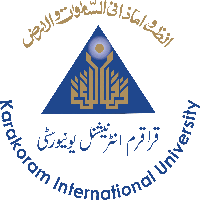
The Sustainable Places Research Institute at the Cardiff University, UK, organised a webinar on Wednesday to praise the awareness about climate change as a theme in the Hindu Kush Himalaya (HKH) region of Pakistan.
The webinar was organised to commemorate the International Mountain Day celebrated around the world.
The panellists included Prof. Dr Attaullah Shah, vice-chancellor (VC), Karakoram International University (KIU), Gilgit; Rab Nawaz, senior director programmes, (WWF-Pakistan); Ali Tauqeer Sheikh, member, Pakistan Climate Change Council andand Syed Muhammad Abubakar, knowledge management communication (KMC) officer, International Centre for Integrated Mountain Development (ICIMOD).
The webinar began with introductory remarks by Dr. Abid Mehmood, senior research fellow, Cardiff University.
He referred to a recent climate change perceptions survey in Pakistan in which 63 per cent of respondents rated climate change as a major future threat.
However, when prioritising among a range of societal challenges, the respondents generally rated climate change as less urgent when compared with education, unemployment and health.
This was followed by a presentation by Syed Abubakar who shared the key findings of his dissertation research conducted as part of MA International Journalism course at Cardiff University, which investigated the impacts of climate change on glaciers, food security, snow leopards, and the media coverage of climate change.
Dr. Attaullah Shah highlighted the role of KIU in climate change awareness, education, and research in Gilgit- Baltistan.
According to him, “KIU has been focusing on education and research about climate change, its adaptation, and sustainability. We are focusing on three major directions, firstly specific courses and degree programmes in the areas of sustainability; focused research in these areas, and national and international collaboration with higher education and research institutes; and partnering with governments, community, and sponsors for furthering research and awareness.”
Rab Nawaz of WWF-Pakistan said: “As we come up to a year living with Covid, there is a need to examine our relationship with nature. For decades, we have known that we have been hurtling towards an environmental and ecological disaster. WWF-Pakistan along with the support of partners such as local communities and academic institutes such as Karakorum International University and Sustainable Places Research Institute are determined to bring science-based solutions to tackling the impacts of climate change through a participatory and inclusive approach.”
The last panellist, Shabbir Ahmed Mir, CEO, Ibex Media Network, highlighted the challenges the local media of Gilgit-Baltistan faces while reporting climate change. According to Shabbir, “Journalists in Gilgit-Baltistan have the capacity issue to report on climate change, due to which they cannot comprehend the issue and therefore cannot write on it. The trend of investigative journalism is non-existent in the region, as the associated financial benefits do not exist. The staff is already underfunded and in such financial constraints, they are unable to provide proper coverage. The media houses and editors also need to be sensitised to climate change.”
Published in Dawn, December 17th, 2020
